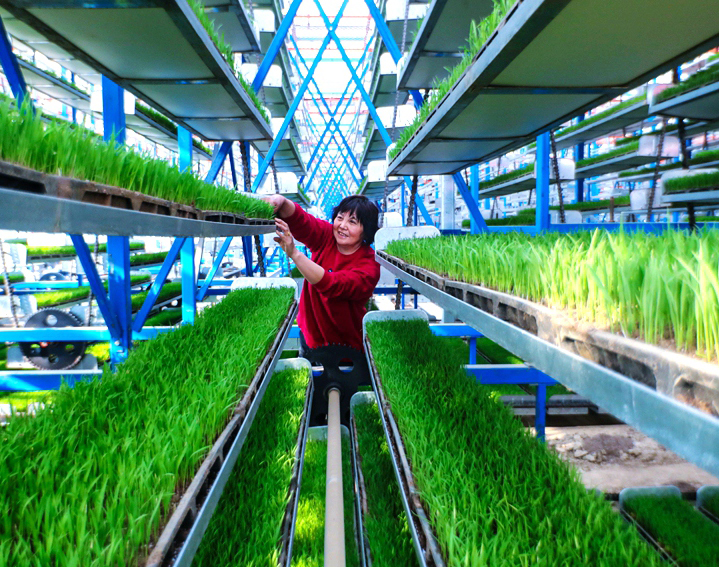Villagers rush to complete overseas orders while embracing Spring Festival
Since Tong Guanghai prepared things for the Spring Festival in advance, he worked overtime at the factory to produce sweaters of an order from Spain with an easy mind.
"We usually go off duty at 5:30 p.m., but we recently worked until 10:00 p.m. with extra pay to complete the order before the festival," Tong said.
The Spring Festival, or the Chinese Lunar New Year, falls on Jan. 22 this year.
Last year, Tong obtained an ironing job at the Shuangli knitting plant in Shuangzhuyuan Village, Shangshiqiao Township of Shangcheng County in central China's Henan Province. The 50-year-old man was a truck driver working in Hubei Province's Wuhan City.
"My mum is in poor health, and my son will sit the college entrance examination this summer. I want to spend more time with them, so I found this job nearby my home," Tong said.
The mountainous county shook off poverty in 2015. Ahead of that, most of the villagers traveled far away to the provinces of Zhejiang and Guangdong to earn more wages in the textile industry.
Liu Chenglin, general manager of the Shuangli knitting plant, said that the plant opened in 2018 and mainly produces woolen sweaters for some European brands.
"The local government persuaded me to move back to the village from Zhejiang to promote the economy of our hometown and also boost employment," Liu recalled, adding the low rents and abundant labor in the hometown were very attractive.
Villager Cheng Guangxia had worked in southern China's Guangzhou City for more than ten years. In 2018, she returned and became a quality inspector at the Shuangli knitting plant, getting a monthly salary of 6,000 yuan (about 886.6 U.S. dollars).
"The salary is not much less than that in Guangzhou. I can take care of my mother-in-law, who is in her 80s, and my parents, in their 70s. I'm already 51 years old, and I don't want to drift from place to place anymore," Cheng said.
Shuangli knitting plant provides jobs for more than 70 locals and over 400 mobile positions, allowing workers to do work in their spare time, like cutting threads and sewing at home.
"We got a lot of orders and produced 1.8 million woolen sweaters last year, an increase of 600,000 over 2021," said Liu.
Data shows more than 130 knitting enterprises in Shangshiqiao Township provide over 4,000 jobs for the residents.
An increasing number of migrant workers have returned home to get work since the country is advancing rural revitalization.
Recommend for you
Archaeologists find 570 ancient tombs in central China
China, Singapore vow to enhance cooperation
Viewpoint
- Gov't trying to help students find jobs
- Tackling inflation: How China is helping mitigate global price spikes
- Xinhua Headlines: China's Xi'an tightens control measures amid COVID-19 resurgence
- Russia's Nord Stream 2 pipeline ready to pump gas to Europe
- Uruguay confirms first cases of Omicron
- Walking in footsteps of Marco Polo
News
- Farmers cultivate rice seedlings ‘in the air’ in C China’s Henan
- Henan launches new freight route to Miami
- Sergio Diaz appointed head coach of CSL club Henan Songshan Longmen
- Activities held to celebrate upcoming Latern Festival across China
- January box-office earnings hit record high
- Villagers rush to complete overseas orders while embracing Spring Festival




